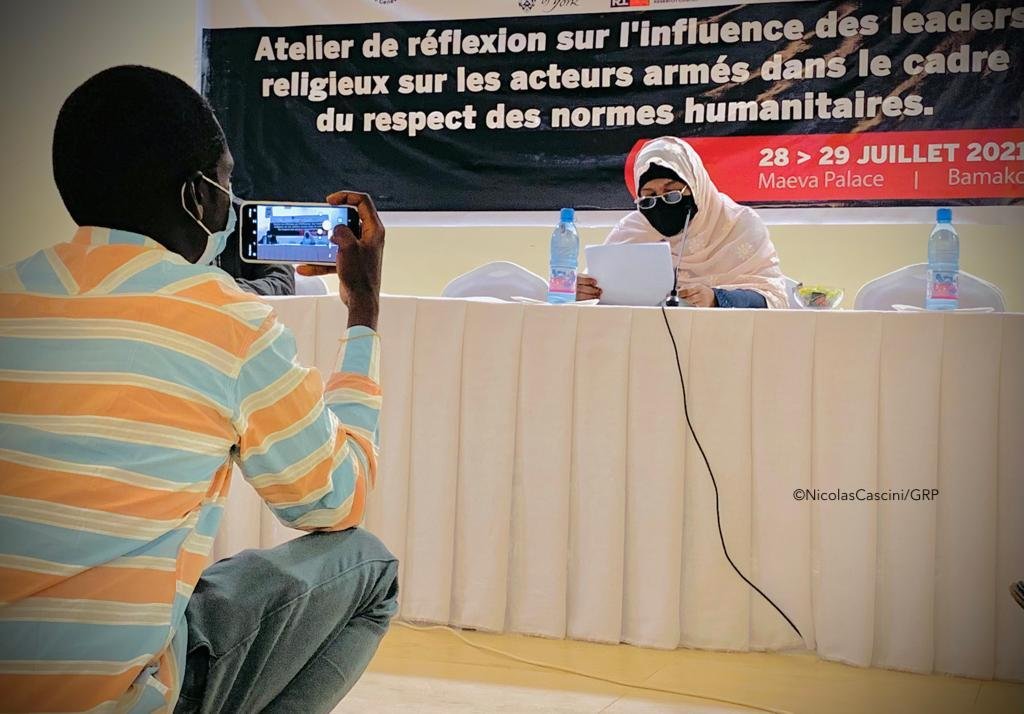
Digital Resources

The Generating Respect Project Digital Stories
The Generating Respect Project uses digital storytelling to support primary data collection, as an analytical tool, and to generate impact beyond academia. An arts-based research method, digital storytelling is conducive to co-creation between researchers and research participants thereby enriching the data gathered. It also allows for the wider dissemination and understanding of the findings by users and affected communities.
The digital stories produced by the Generating Respect Project team draw on data from our in-country fieldwork, online key informant interviews, and desk based research. Crafted by our digital storyteller Nicolás Braguinsky Cascini, they combine text with audio, video, and photographic recordings.
Disclaimer: The views and opinions expressed in the digital stories are those of the interviewees and research participants, and do not necessarily represent the views or opinions of the Generating Respect Project, affiliated institutions, partners or our funder. The appearance of the digital stories on the Generating Respect Project website and YouTube channel does not constitute an endorsement of the views or opinions expressed.
GRP digital story: “The Catholic Church and Armed Groups”
The digital story "The Catholic and Armed Group" draws on interviews conducted by Piergiuseppe Parisi and Yolvi Lena Padilla Sepulveda in 2022 and 2023 in Colombia, as part of the fieldwork for the Generating Respect Project. Nicolás Braguinsky Cascini produced the video.
The video is in Spanish with English subtitles.
@GRP 2023
GRP digital story: "Madame Cissé, prédicatrice de l’équité"
The digital story Madame Cissé, prédicatrice de l'équité was produced by Nicolás Braguinsky Cascini and is based on filmed interviews conducted by Piergiuseppe Parisi and Mohamed Assaleh in 2021 in Mali, as part of the fieldwork for the Generating Respect Project. Ioana Cismas and Ezequiel Heffes have also contributed with content and feedback.
The video is in French with English subtitles. It forms part of the Geneva Peace Week 2021 digital series A Leap of Faith: Effective Engagement between Religious Actors, Humanitarians and Peacebuilders. The digital series is co-organised by the International Center on Religion and Democracy, Inclusive Peace, the United States Institute of Peace, the Centre for Applied Human Rights and Geneva Call.
@GRP 2021
GRP digital story: "Mahmoud Dicko, l'imam qui appartient à la terre"
The digital story "Mahmoud Dicko, l'imam qui appartient à la terre" was produced by Nicolás Braguinsky Cascini and is based on filmed interviews carried out by Piergiuseppe Parisi and Mohamed Assaleh in 2021 in Mali, as part of the fieldwork for the Generating Respect Project. Ioana Cismas and Ezequiel Heffes have also contributed with content and feedback.
The video is in French with English subtitles.
@GRP 2022
Digital Stories Series:
Reflections on Mali - Religious Leadership, Armed Conflict,
and Respect for Humanitarian Norms
The ‘Reflections on Mali’ series comprises five short videos that capture the viewpoints of religious leaders, policy analysts, and humanitarians on the role of religious leadership in the context of the Malian armed conflicts.
The videos were produced by Nicolás Braguinsky Cascini and are based on filmed interviews carried out by Piergiuseppe Parisi and Mohamed Assaleh in 2021 in Mali, as part of the fieldwork for the Generating Respect Project. The videos are in French with English subtitles.
Mohamed Ahmad El Ansari
Président du Conseil Collectif des Jeunes Nomades pour l’Action et le Développement (Nomades-Dev)
President of the Collective Council of Young Nomads for Action and Development
Sylla Fatoumata Cissé
Conseillère technique, Ministère de l’education, Mali
Technical advisor, Ministry of Edducation, Mali
Alphadi Wangara
Iman de la mosquée Sisi Yahu, Tombouctou
Iman of the Sisi Yahu mosque, Timbuktu
Aminata Samaké
Chargée de programme, Centre de droit international humanitaire Diakonia
Responsible of programme, Diakonia International Humanitarian Law Centre
Thierno Hady Thiam
Vice-président, Haut conseil islamique malien & Président du groupe de travail “Droit de l’homme et religions”
Vice-president, High Islamic Council of Mali & President of the working group “Human rights and religions”

Video Series
GRP Researchers in Conversation: Religious Leaders & Armed Conflicts
GRP Researchers in Conversation: Religious Leaders & Armed Conflicts is a video series launched in 2021 that draws on research findings from the project Generating Respect for Humanitarian Norms: The Influence of Religious Leaders on Parties to Armed Conflict (The Generating Respect Project, GRP).
Video production and editing @nicolasbraguinskycascini
GRP Researchers in Conversation, Episode 1:
Religious Leaders & Armed Conflict in Colombia
In the first episode of the video series, GRP researchers Dr Jonathan Zaragoza and Ms Yolvi Lena Padilla discuss preliminary findings ensuing from the mapping of armed conflicts in Colombia and 30 key informant interviews with experts on the topic.
Jonathan and Yolvi illustrate that religious leaders have played a key role in generating respect for humanitarian norms and the facilitation of peace efforts in Colombia. A number of factors shape their influence on armed actors. Among these factors are the religious leaders’ special legitimacy, grounded in charisma or tradition, as well as their geographical and, at times, ideological proximity to affected communities and/or non-state armed groups. Whilst geographical proximity provides religious leaders with direct opportunities for engagement with armed actors, shared values, such a joint call for social justice, serves to create a certain affinity and facilitate their influence.
GRP Researchers in Conversation, Episode 2:
Religion and Compliance in War
In the second episode of GRP Researchers in Conversation, Professor Emiliano Buis engages us in a discussion of religion and compliance in war.
Professor Emiliano J. Buis is Chair of Public International Law, International Humanitarian Law and Law of Disarmament, Non-Proliferation and Weapons Control at the University of Buenos Aires Law School and the Director of the Observatory of International Humanitarian Law (IHL). He is a member of the Generating Respect Project Advisory Board.
GRP Researchers in Conversation, Episode 3:
Female religious leadership in Mali and the camera
What are the challenges of generating knowledge about the role of religious leaders in a conflict-ridden country like Mali through videos? What can the camera capture and communicate more effectively than academic articles? How can the visibility of a Muslim female religious leader contribute to empowering women in Mali? Dr Piergiuseppe Parisi (University of York) addresses these questions in conversation with filmmaker Mr Nicolás Braguinsky Cascini and Malian religious leader Madame Cissé Zeinab Keita as part of the 72nd Political Studies Association (PSA) Conference.
The event was conceived as a reflection on the fieldwork that Dr Parisi and Mr Braguinsky Cascini conducted in Mali in July-August 2021 as part of the Generating Respect Project, an ESRC-funded research project hosted at the Centre for Applied Human Rights and York Law School, and, in particular, on their encounter with inspiring Madame Cissé. It brings together the perspectives of a researcher, a filmmaker, and a research participant.
This event complements the exhibition of the digital story ‘Madame Cissé, prédicatrice de l’équité’ during the PSA Conference.

Talks & presentations
Generating Compliance With Humanitarian Norms: The Less-Explored Avenues
On 16 May 2020, the Geneva Academy of International Humanitarian Law and Human Rights and the Centre for Centre for Applied Human Rights at the University of York organised the online event “Generating Compliance with Humanitarian Norms: The Less-Explored Avenues”.
Moderated by Émilie Max, the event hosted Dr Ioana Cismas, the Generating Respect Project’s principal investigator, alongside members of the Advisory Board Professor Emiliano Buis and Dr Katharine Fortin. They explored the role of religious leaders as influencers of state and non-state parties to armed conflicts, the relationship between emotions and IHL, and civilians’ self-protection in territories under the control of armed groups.
Not the Usual Suspects:
Religious Leaders as Influencers of Humanitarian Norms Compliance
As part of the #YorkTalks 2021 “Research in the Spotlight” series, Dr Ioana Cismas gave a presentation in January 2021 titled “Not the usual suspects: religious leaders as influencers of humanitarian norms compliance”.
The talk discusses the rationale of the Generating Respect Project, early findings of the research team, and the potential impact for the humanitarian field.
Religious Leaders and Transitional Justice
The International Coalition of Sites of Conscience’s Global Initiative for Justice, Truth & Reconciliation (GIJTR) organised the webinar “Religious Leaders and Transitional Justice” on 23 September 2021.
Dr Ioana Cismas, Reader at the University of York, joined the Coalition’s Sarah Case, Deputy Program Director, GIJTR, and Diana Naoum, Program Manager, GIJTR, Felix Dara of Destiny Farm International in South Sudan, and Reverend Mbaraza Emmanuel of Faith Aid Initiative for Humanity in South Sudan to speak about the involvement of religious leaders in transitional justice processes and creative ways to engage them in support of truth-telling, justice, and healing.
Relevance of International Law Standards to Religious Leaders
Dr Ioana Cismas gave a presentation on the Relevance of International Law Standards to Religious Leaders on 9 April 2022 in Florence. The talk was part of the project of the Centre for International Law and Policy (CILRAP) focusing on “Religion, Hateful Expression and Violence”.
“The project seeks to generate new knowledge on or understanding of the factual nature of religion-based or -related hate speech (Part II); factors that motivate such hate speech (Part IV); international law and other significant normative frameworks regulating these forms of hate speech (Part III); and measures external and internal to religious communities that can help religious leaders broadly speaking to better prevent or reduce hate speech in the name of their faith.”
All presentations can be viewed on CILRAP’s website.


